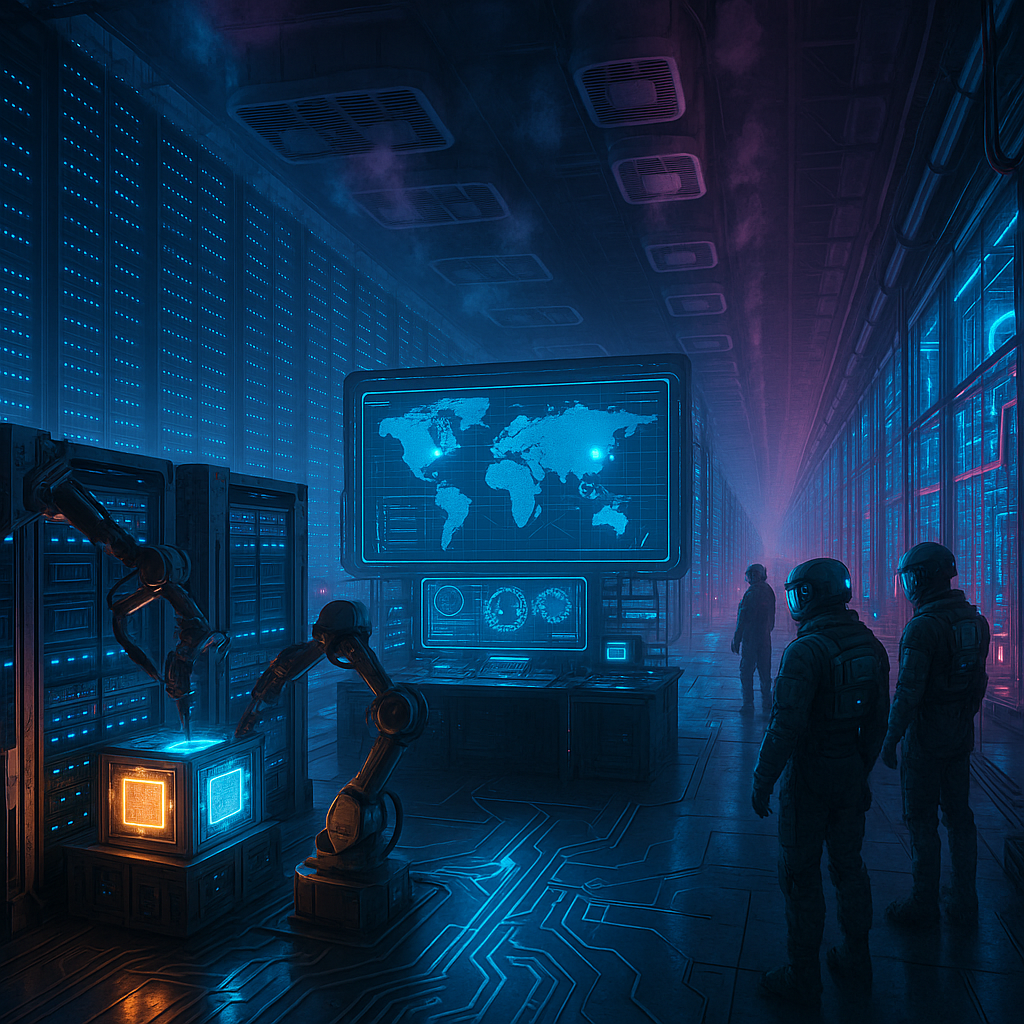Key Takeaways
- Top story: OpenAI unveils a $400 billion plan to build five new state-of-the-art data centers, reshaping global AI infrastructure.
- Apple faces a landmark lawsuit alleging its AI was trained on copyrighted literary works without permission.
- Meta and Oracle enter negotiations on a potential $20 billion cloud partnership to supply next-generation AI infrastructure.
- Deepfake video technology has reached new levels of sophistication, intensifying concerns about disinformation and authenticity.
- What to watch: The initial court hearing for the Apple AI copyright lawsuit is scheduled for next month.
Introduction
On 25 September 2025, OpenAI announced a $400 billion plan to construct five cutting-edge data centers. This move will fundamentally alter the architecture of global artificial intelligence. The development raises new questions about technological scale, responsibility, and the future of knowledge. At the same time, Apple faces a pivotal lawsuit over its AI’s use of copyrighted literary works, reflecting broader industry debates examined in today’s AI news analysis for September 2025.
Top Story: OpenAI’s $400 Billion Global Expansion
Unprecedented Scale
OpenAI has revealed a $400 billion expansion initiative to establish advanced AI research facilities on five continents. The plan includes new quantum computing centers in Singapore and Zurich, as well as dedicated laboratories for studying non-human cognitive architectures.
Sam Altman, OpenAI’s CEO, stated that the expansion is intended to “fundamentally reimagine how artificial minds might differ from human intelligence.” The company will collaborate with 12 leading universities to explore alternative cognitive frameworks.
This investment represents the largest private commitment to AI research to date. It even surpasses the combined AI spending of all major technology companies over the past five years.
Stay Sharp. Stay Ahead.
Join our Telegram Channel for exclusive content, real insights,
engage with us and other members and get access to
insider updates, early news and top insights.
 Join the Channel
Join the Channel
AI infrastructure advances are a key enabler for such initiatives, supporting the complex computational demands of artificial intelligence at scale.
Also Today: Developments in AI
Copyright Battle Intensifies
The U.S. Copyright Office has released preliminary guidelines for AI-generated works, introducing a “hybrid authorship” category. This framework requires detailed disclosure of AI involvement while safeguarding original human creative contributions.
Major publishers have filed a joint motion challenging these guidelines, contending that they do not adequately address the complexities presented by AI-assisted creation. The main point of debate is how to define meaningful human involvement in increasingly automated creative processes.
As generative AI continues to affect copyright and creativity, broader philosophical questions about authentic authorship are explored in articles examining AI ghostwriting.
Strategic Partnership Shift
Google DeepMind and Microsoft have announced an open-source collaboration focused on the development of large language models. Their joint initiative, called the “Open Cognition Alliance,” will facilitate the sharing of computing resources and research findings.
This partnership marks a significant departure from prior competitive strategies. Both companies indicated that the need for responsible AI development motivated their decision to collaborate.
Collaborative approaches to AI can reshape not only industry strategy but also how society views algorithmic consequences, as discussed in the context of algorithmic karma.
Synthetic Media Standards
The AI Media Consortium has introduced industry-wide watermarking standards for AI-generated content. This protocol embeds undetectable markers that survive editing yet maintain content integrity.
Major social media platforms and news organizations are among the initial adopters. Implementation will begin on 15 October 2025, with mandatory compliance expected by the end of the year.
What to Watch: Key Dates and Events
- U.S. Senate AI Oversight Committee hearings on 30 September 2025
- Inauguration of OpenAI’s Singapore Research Center on 5 October 2025
- Global AI Ethics Summit in Geneva from 12 to 14 October 2025
- Final implementation deadline for the EU AI Act on 1 November 2025
For insights into the impact of upcoming AI regulation, see this in-depth guide to the EU AI Act.
Conclusion
OpenAI’s $400 billion infrastructure plan is reshaping the landscape for AI research and ambition. This bold move prompts vital questions about the future boundaries of artificial minds. The industry’s accelerating momentum is matched by escalating legal and ethical challenges, with new standards and unexpected partnerships highlighting the sector’s complexity. Keep an eye on the upcoming U.S. Senate AI hearings, the launch of OpenAI’s Singapore center, and pivotal summits shaping AI news analysis for September 2025. Explore how topics such as AI origin philosophy are influencing the ongoing debates about the intelligence and responsibility of artificial systems.





Leave a Reply